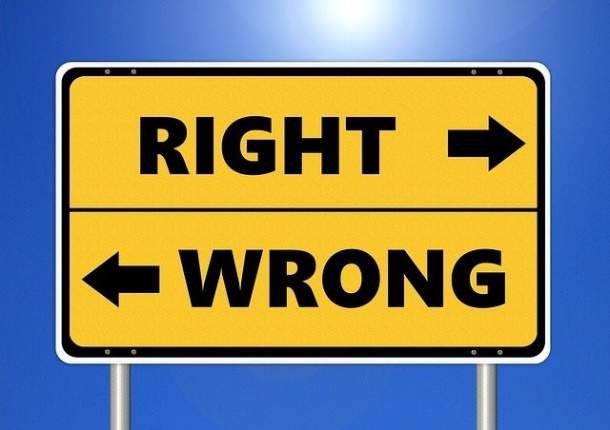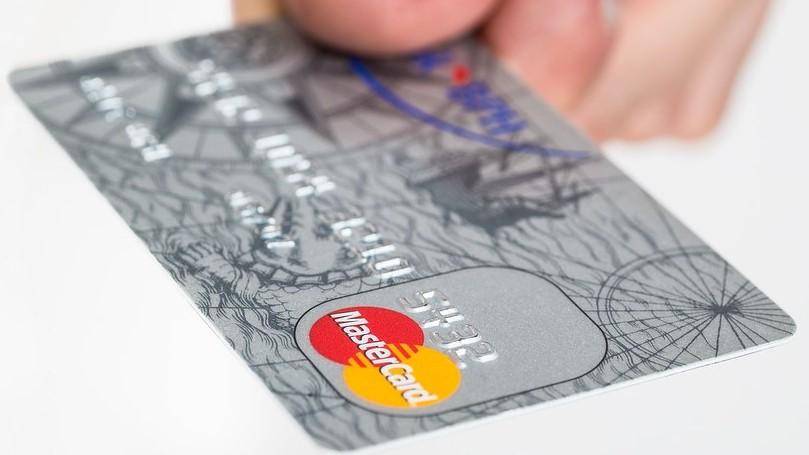Credit score vs credit report, aren’t they the same?
It’s important for you to know the difference between your credit score and credit report.
Once upon a time, I thought they were one and the same.
Four years of business school and $65,000 later, I learned they are distinctly different.
Don’t think of this subject as credit score vs credit report; which one is better.
Rather, how do they correlate with one another and help each other out?
In short, your credit score is a number assigned to your financial life while your credit report is the story of your financial past.
Did you know a simple increase in credit score from 660 to a good standing score of 695 could save you $301 per year in just interest? (Credit Sesame Survey)
In this writing, I’ll share with you the detailed difference between your credit score and credit report, why they both are important when they are updated, and if you need to focus on one more than the other.
“My heroes are the ones who survived doing it wrong, who made mistakes. But recovered from them.” – Bono

What is a Credit Score
Your credit score is a number ranking system used by lenders.
This ranking system tells a lender if you will pay back their money.
It also helps them decide what interest rate to give you.
Essentially, the higher your credit score the more likely the lender will be paid and the lower your interest rate will be.

What is a Credit Report
A credit report is a statement that describes your pay history and current credit situation.
The credit report contains:
- Personal identification information
- All your credit accounts both past and current
- Collection items
- Credit inquiries – Any company that has reviewed your credit report recently.
If you have too many credit inquiries within a 6-month period, your chances of getting a loan or a decent interest rate decreases.
When I was shopping around for a mortgage lender, I told each title company I applied to that I was looking for the cheapest interest rate and best terms.
It prepared them to see multiple mortgage company inquiries on my credit report.
While notifying them all of the credit inquiries were for one line of credit.

Why Your Credit Report and Credit Score is Important
Credit Score
Your credit score can make or break your financial life.
This number determines which loan applications you will be approved for, your credit interest rate, and the total amount you can borrow.
Effects of a Low Credit Score
A low credit score will cause everything from your mortgage/rent to your credit cards to be more expensive.
You will have fewer living options, lines of credit, and even high insurance premiums.
Subscribe and you'll receive our weekly posts right in your inbox. You'll also be one of the first to be notified when our free budget course opens. Hope to see you there!
Effects of a High Credit Score
A high credit score will not only lower the cost of borrowing for you but will also provide you with some rewards.
You will have more lines of credit and better repayment terms available to you.
Also, expect to see insurance discounts, better housing options, and some of your utilities may even waive security deposits.
These deposits can be hefty when getting utilities turned on.
For example, my water company required a $100 deposit along with the first month’s water usage payment when I first moved into my house.
After paying my bill on time every month for a year my deposit was refunded.
More Articles You May Be Interested In:
Should I Use All of my Savings to Pay Off my Credit Card Debt
How do I Get Out of Debt With Bad Credit
When Credit Cards Help Your Finances
How Does Credit Card Interest Work
Credit Report
Similar to your credit score your credit report will affect your ability to borrow money.
The credit report is used to calculate your credit score by the credit bureaus.
Landlords, insurers, cable companies, etc. will also use it to determine application approvals, your security deposit amount, and how much to charge you each month.
You can even use your credit report to identify fraudulent activity.
It doesn’t hurt to check your report at least once per year. You can request a free copy every year here.

How Often is a Credit Score/Credit Report Updated
Credit Report
Your credit report is updated monthly or every 45 days at a minimum.
Some lenders could even choose to send updates to the credit bureaus even more frequently than that.
This is how bad marks make it to your credit report so quickly.
Credit Score
Your credit score only updates based on the activity on your credit report.
If you suddenly have a collection appear, your credit score will decrease several points quickly.
On the other hand, making a large payment toward debt can significantly increase your credit score several points.
However, paying a consistent monthly amount toward your debt without missing a payment for a year, will not affect your credit score.
This activity just creates a good credit history for you on your credit report.
Rapid rescoring can also update your credit score. This is a rare occurrence and scammers use this as a ploy to get you to pay them for correcting your credit overnight.
Legitimate rapid rescoring is used during a credit approval process, a mortgage approval for example.
The lender will ask the credit bureaus to add a pending positive credit to your credit report on your behalf.
This action will cause your credit score to update within a few days.

Which Credit Score is the Most Important
If you’ve ever seen your credit score you may have noticed there are three different numbers.
These scores are provided by each individual credit bureau.
This means a different type of calculation model is used.
It’s also possible not all of the same information is being reported to each credit bureau.
Some lenders may only report to Experian while others only report to Transunion.
According to an inquiry by CNBC, FICO scores are used 90% of the time by lenders.
If you are in the market for a new home or a brand new car, the FICO score is the number you want to double-check before speaking with lenders.
This doesn’t mean to ignore your other credit scores, it only means this is the main scoring model that will be pulled first.

More Articles You May Be Interested In:
Should I Use All of my Savings to Pay Off my Credit Card Debt
How do I Get Out of Debt With Bad Credit
When Credit Cards Help Your Finances
How Does Credit Card Interest Work
Concluding Thoughts
Ok, this is all well and good but what do I do with this information about credit score vs credit report?
Start requesting your free credit report on a yearly basis.
Set a reminder in your phone so you don’t forget.
Once you receive a copy read through it. Make sure you recognize everything on it and stay updated on your financial story.
This is the best way I know to catch fraud or find debts you may have forgotten you have.
The main lesson here is, always know your financial story.
Do not let something surprise you during an approval process.
The last thing you want is to lose the opportunity to purchase your dream home or a desperately needed family car because of an unknown bad mark on your credit report.
References
https://www.annualcreditreport.com/index.action
Subscribe and you'll receive our weekly posts right in your inbox. You'll also be one of the first to be notified when our free budget course opens. Hope to see you there!





